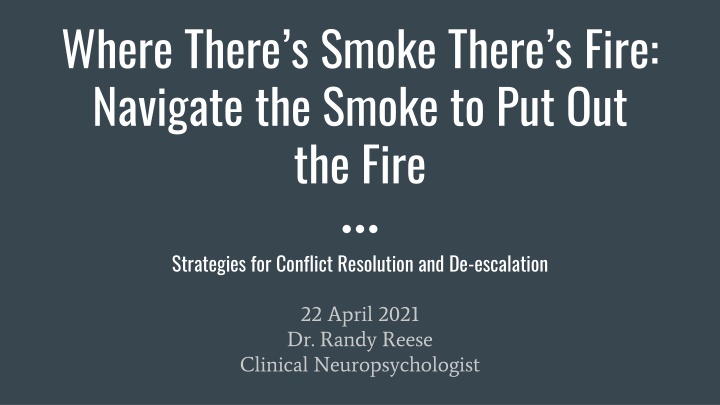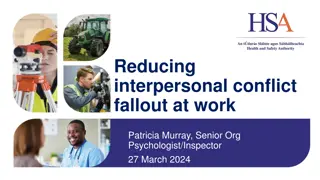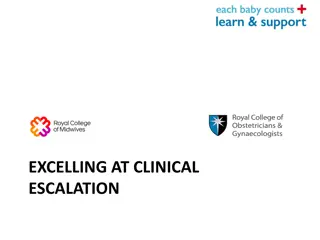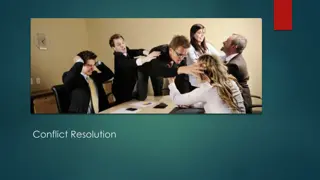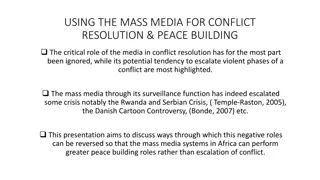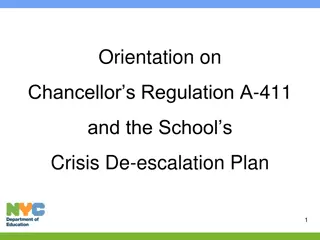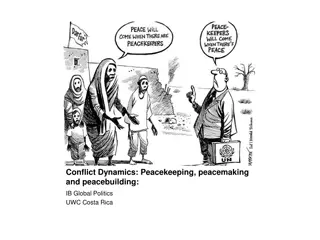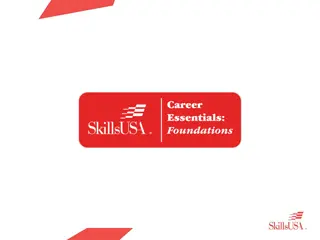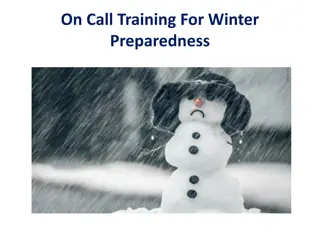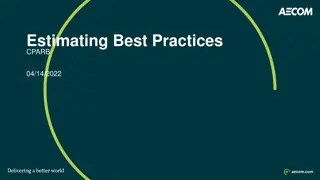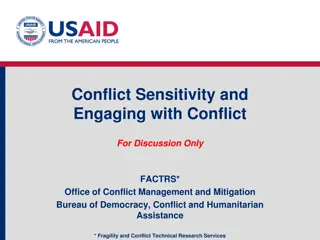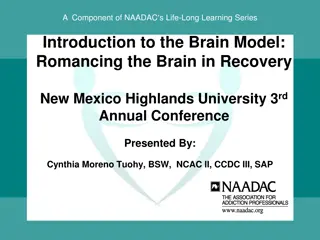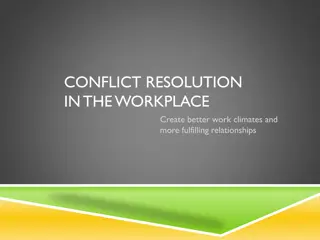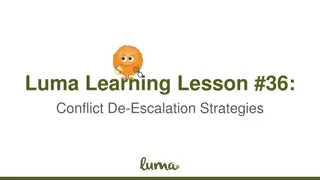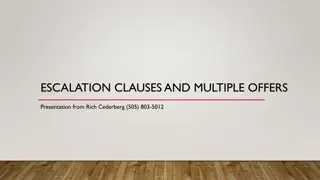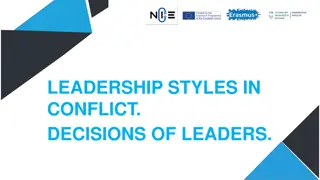Strategies for Conflict Resolution and De-escalation
Learn how to identify and manage personal reactions that fuel conflicts, understand the physiological triggers of fight or flight responses, and discover effective ways to de-escalate conflicts before they escalate. Dr. Randy Reese, a Clinical Neuropsychologist, provides insights and strategies for navigating through challenging situations and diffusing tensions to promote harmony and understanding.
Uploaded on Sep 20, 2024 | 0 Views
Download Presentation

Please find below an Image/Link to download the presentation.
The content on the website is provided AS IS for your information and personal use only. It may not be sold, licensed, or shared on other websites without obtaining consent from the author.If you encounter any issues during the download, it is possible that the publisher has removed the file from their server.
You are allowed to download the files provided on this website for personal or commercial use, subject to the condition that they are used lawfully. All files are the property of their respective owners.
The content on the website is provided AS IS for your information and personal use only. It may not be sold, licensed, or shared on other websites without obtaining consent from the author.
E N D
Presentation Transcript
Where Theres Smoke Theres Fire: Navigate the Smoke to Put Out the Fire Strategies for Conflict Resolution and De-escalation 22 April 2021 Dr. Randy Reese Clinical Neuropsychologist
Overview 1. 2. Learn skills to identify personal reactions that add to conflagration 3. Take action to reduce the conflict 4. What to do in an inferno - when your efforts don t change the dynamics Identify factors that contribute to conflict/escalation Expectation management: This will not make you a professional negotiator DISCLAIMER: The views expressed here are my own and are not intended to represent the Naval Academy, US Navy, or Department of Defense
What causes conflict? It s the amygdala stupid. .the F? (Fight, Flee, Freeze)
The physiology of Fight or Flight The brain and body s car alarm
How to know if someones alarm is going off Verbal indicators Non-verbal Your reaction Volume Language Tone Invoke authority Expression Muscle tension Agitation Getting angry Feeling defensive Wanting to escape Heart rate/tension
What people do when the alarm goes off Fight Flight Play Dead Challenging Attacking Beligerent Invoke authority Disengage Not reply to contact efforts Passive aggressive Stop replying Slow responses Give in even when you know it s not what they need Victimized presentation
Now you see the fire and feel the sparks, how to respond? (Am I mixing too many metaphors here??)
How can you help de-escalate conflict if you are kindling for the fire? What is your automatic reaction to someone who is triggered? Two pronged approach to changing the response.
Know yourself first What am I feeling? What am I feeling? What is the root of my feeling? What is the root of my feeling? What are my feelings telling me to do now? What are my feelings telling me to do now? Does that match what I d do if I wasn t feeling this way? Does that match what I d do if I wasn t feeling this way?
How do I know myself? The ability to perceive, manage, and regulate emotions Emotional Intelligence Mindfulness Non-judgmental awareness of the present What are your sensitivities and what sets you off? Triggers Self-care Maintaining emotional health and resilience
Wait a second - why are we talking about me? The other person started it!
Ok, fine, Ill know myself - now what? Turn off the amygdala Relaxation response What are your behaviors? How would you want to respond if emotions weren t driving your behavior? Value directed behavior Values Guess this means you have to know your values and how they translate to behaviors Time to die Funeral eulogy
Ok, now Im ready to work with this angry person, what do I do?
Seek first to understand, then to be understood Stephen Covey, 7 Habits of Highly Effective People
Understand what is triggering the defense response Ask open ended questions. Ask open ended questions. Understand their needs and perspectives. Understand their needs and perspectives. Where is the friction point with your position? Where is the friction point with your position? What do they need to feel their needs are met? What do they need to feel their needs are met?
Do you actually listen? To understand or to respond? Fully concentrate, understand, and remember what is said Active listening Understand the speaker s idea Offer idea back to confirm understanding Reflective listening Making an emotional connection Finding similarities to give heartfelt response Empathic listening Time to die Funeral eulogy
Fine. I know myself. Im really listening. Now what??
Models of Conflict Resolution Conflicts are based in: interests/power/rights (costs increase) The Stairway Deepens Stairway model: Result (Substantive), Process (Procedural), Emotion (Psychological) Satisfaction Triangle Identify what drives conflict (threat): values, data, externals/moods, interests, structure Circle of Conflict Time to die Dynamics of Trust Funeral eulogy Looks at breakdowns in trust and subsequent blame and how to resolve the trust issues
Models of Conflict Resolution (Cont) Want to give what you receive - see previous conversation to break the cycle Law of Reciprocity Cognitive bias: Pain of losing is twice as powerful as pleasure of gaining (Mindfulness, values) Loss Aversion Bias Boundary Model Defined boundaries and norms Time to die Social Styles Model Funeral eulogy Understand different personality styles
Models of Conflict Resolution (Cont) Moving Beyond Conflict People identify with conflict and hard to let go Stages of acceptance to let go and move beyond conflict Denial (something ending) Anger (Confusion and Distress) Acceptance (New Beginning) Patience, understanding, and support through this May impact identity to give in
Ive done everything you said and they wont budge Agree to disagree Agree to disagree What can you still offer even without compromise? What can you still offer even without compromise? What is required by contract/position/service? What is required by contract/position/service? Self Self- -care care - - recovering from a conflagration recovering from a conflagration
